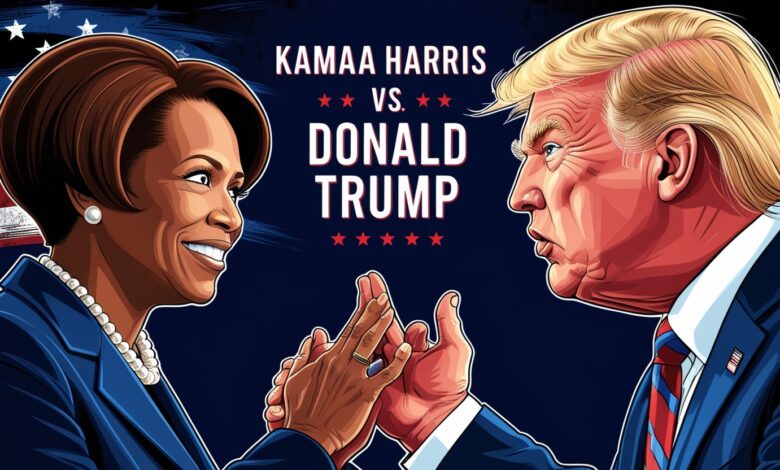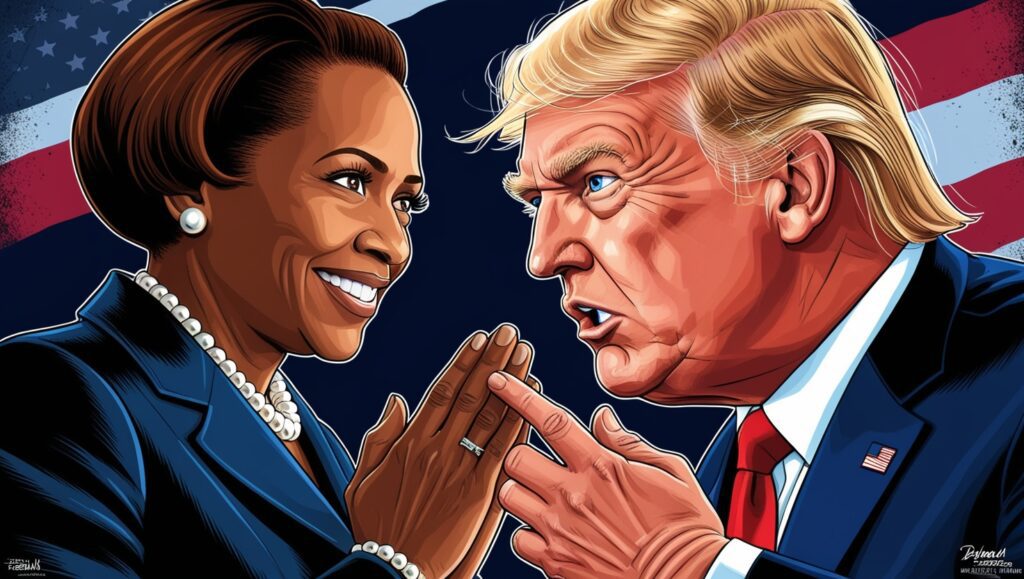US Presidential Debate: A Key Factor in the Election

In the United States elections, one of the most crucial aspects is the presidential debates between the candidates running for president. These debates give the candidates an opportunity to present their policies, ideas, and plans, showing how they will benefit the people if they win the presidency. A memorable debate was the one between Donald Trump and Joe Biden, where Biden struggled to clearly communicate his ideas, possibly due to his age and health. On the other hand, Trump dominated the debate, which gave rise to discussions about changing the Democratic candidate, ultimately leading to the endorsement of Kamala Harris as the Democratic presidential candidate.

Now, with Kamala Harris as the Democratic nominee and Donald Trump as the Republican nominee, the first presidential debate between them has taken place. Although this is the second presidential debate overall, it is the first between Harris and Trump, making it a highly anticipated event. In this analysis, we’ll break down the key points discussed in the debate, focusing on topics not covered in previous discussions, such as economic policies, immigration laws, and the contentious topic of abortion rights.
Economic Policies: A Clash of Ideologies
The debate kicked off with a discussion on the U.S. economy, led by Kamala Harris. She criticized Donald Trump for supporting large business houses, claiming that his policies would benefit only the wealthy. According to Harris, Trump’s economic policies would increase the deficit and harm the middle class by raising import duties. In contrast, she emphasized her commitment to supporting middle-class families, drawing on her own background from a middle-class family.
Israeli Airstrike Kills 19 in Gaza Tent Camp
Trump responded by defending his policies, arguing that they promote tax rebates for big businesses, which, in turn, benefit the economy as a whole. He reiterated his stance on increasing import tariffs, especially targeting China, to safeguard American industries.
One significant point of contention was the Project 2025, a Republican plan that aims to centralize decision-making in the hands of the president by bringing independent agencies like the Department of Justice under direct presidential control. Harris strongly criticized this, while Trump distanced himself, saying he agreed with some points but disagreed with others.
Immigration and Abortion Rights
Immigration laws were another hot topic. Harris reiterated that she would maintain the current immigration policies, focusing on a humane approach. Trump, on the other hand, vowed to make immigration laws stricter, as he has in the past. This contrast highlighted the ideological differences between the two candidates.
Abortion rights also took center stage. The debate over Roe v. Wade and the future of abortion rights in the U.S. has been a heated issue, with Trump siding with conservative views and Harris advocating for women’s reproductive rights.
The Microchip Industry and International Trade
Harris launched a strong attack on Trump regarding his handling of the microchip industry. She accused Trump of allowing China to gain an advantage by exporting microchips that were used in China’s defense sector. Trump countered by claiming that Harris was misinformed and emphasized that during his tenure, he had taken significant steps to address the issue, including tackling the international trade war and the COVID-19 pandemic.
The Verdict: Who Had the Edge?
While Kamala Harris positioned herself as a champion of the middle class, Donald Trump focused on presenting himself as a seasoned leader with clear policies and strong economic plans. Trump’s experience as a former president gave him an edge in discussing complex issues like the microchip industry and international trade. His ability to provide sharp rebuttals to Harris’ points, particularly on the economy, allowed him to maintain a strong position in the debate.
As the debate concluded, both candidates had made their case, but Trump’s direct and clear approach, coupled with his experience, gave him a slight advantage, particularly on economic issues. However, Harris’ emphasis on middle-class support and women’s rights will resonate with voters who prioritize these issues.





